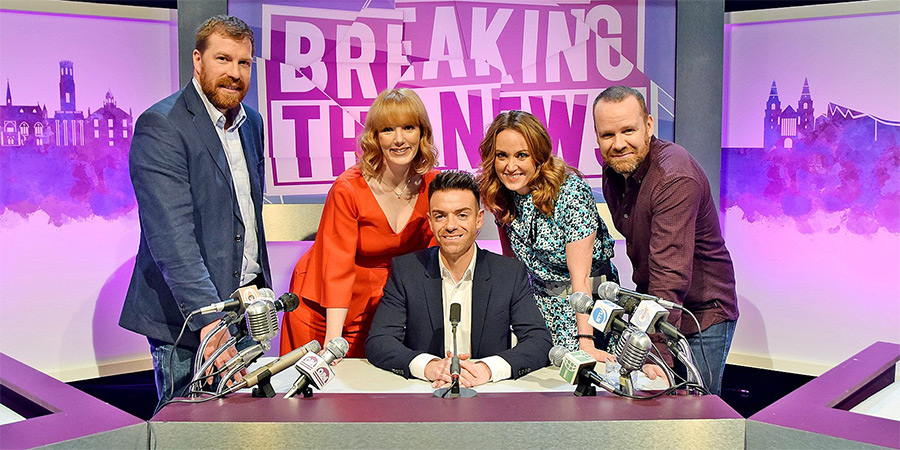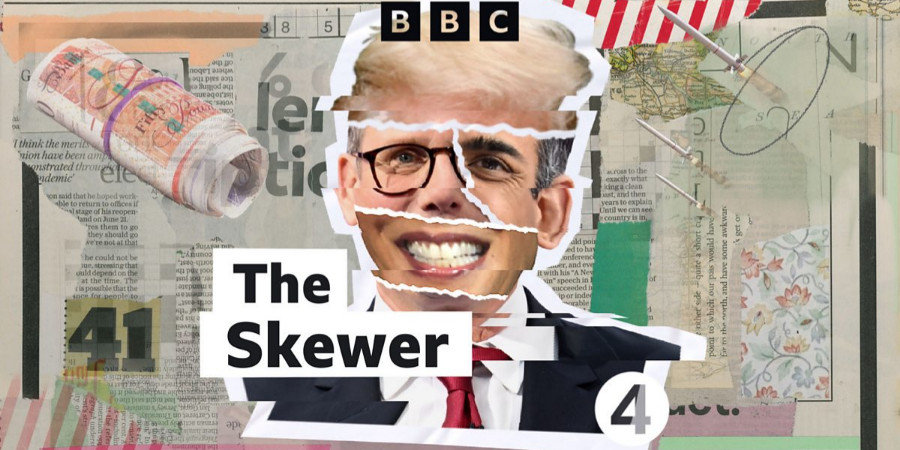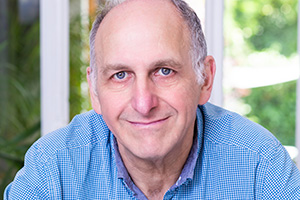Have I Got New For You: Course I can take a joke! (If it's at your expense)

What's next for topical comedy? Part 2 of Dave's deep dive looks at how Twittification almost killed the funny news industry.
Last week I asked how we can continue to create topical comedy during this relatively rare moment in the country's history.
Normally I wouldn't expect a new government to make any difference.
But there were a number of recent changes in how we watched comedy that made me worry about how we make it in the future.
Topical comedy in Britain followed a similar pattern from the 1960s. It was almost entirely class based, because class was how the country operated.
Social media was becoming more relevant. Two of Twitter's biggest selling points were one line gags and simplistic political sloganeering. By and large these lived side by side, only occasionally meeting in the familiar sphere of topical comedy.
Then, round about 2013, one Donald J Trump started to gain traction on the site. Here was a moderately successful TV entertainer embarking on an extension of his showbiz career through politics, a common trajectory in the US long before Clint Eastwood and Arnold Schwarzenegger took the journey.

You've probably forgotten that back then Trump was still playing for laughs. He may HATE TAYLOR SWIFT now, back then he talked a lot about haters and losers.
"Every time I speak of the haters and losers," he tweeted in 2014, "I do so with great love and affection. They cannot help the fact that they were born f**ked up!"
Other gems include this observation that "President Obama wants to change the name of the 'White House' because it is highly discriminating and not at all politically correct!" which is exactly the kind of gag you can imagine sneaking its way into a late-night edgy Channel 4 show.
Around the same time, on the left side of Twitter the gagsters were turning their attention to the two big stories of the summer: Scottish Independence and Israel's attack on Gaza. (Not to be confused with the previous Gaza wars of 2012, 2008 and 2007, or the nine that preceded that one.)
In 2014 the left wing of the Scottish National Party smelt potential referendum victory - and we learned that parties who come close to power are quick to ditch their sense of humour.
In the 1980s the left and the Scots were the funny underdogs while the Tories positively revelled in their image as the nasty party. It was a vote winner for them.
The #indyref discourse, which had always been funny and sometimes hilarious, turned very serious. Jokes about the SNP were frowned upon, a situation which continued right up to the resignation of Nicola Sturgeon in March last year.

Writers for the topical BBC Scotland show Breaking The News can attest to the fact that SNP jokes rarely made the script. Not censorship, more because the majority of the audience no longer found jokes about themselves funny.
For me the ability to laugh at ourselves is one of the things I love about British humour. And even though my own topical take has generally been more left leaning I always thought "funny" was the more important aim.
I have opinions on Brexit and trans rights, as I'm sure you have, but don't feel I have any authority to pronounce on the subjects.
This hasn't stopped many others from my fields of stand-up and comedy writing to pass off their own opinions as cast iron beliefs. Comedians who I had admired in the past for their ability to encapsulate both sides of a conflict with pithy one liners have chosen instead to pick a side and go for the lowest common denominators. These days you're more likely to see your favourite comic slagging off another comic rather than try and come up with jokes related to the topic itself.
In 2017 Twitter doubled its character count from 140 to 280. That had the twin effect of swamping out the quickie one-liner merchants while giving armchair politicians double the space to express their individual beliefs as accepted truths.
What I've seen is a rise in comedy silos - joking about certain issues gives you access to particular spaces. More people sounding off that x or y 'isn't funny', when what they really mean is 'they're doing jokes against my political beliefs.'
This makes it harder to do topical comedy.

Thankfully in 2020 Jon Holmes's superb radio show The Skewer arrived on Radio 4 and it remains the template for the best comic approach.
The Skewer requires some time to attune to but persistence will reward you. The show makes a point of not taking sides - which doesn't mean it sits on the fence, more that the writers feel free to approach each story on its merits.
The result is a show that is mostly just funny and silly, a celebration and laugh at the medium as much as the message. However, there's a serious sketch at the end of the show which is always powerful, coming as it does after the silliness.
Sometimes its power is extraordinary. I remember an episode from July 2021 when one of the recent Prime Ministers - yes we've had four in less than two years - celebrated the reopening of the country after lockdown. This particular PM had previously called for "the bodies to pile high" and his speech was juxtaposed with a World War One poem about unnecessary death.
The Skewer is back with a new series and its message is one we can all continue to follow: keep looking for the silly, keep seeing the funny side of politicians messing up whatever side you're on, you can be serious but save it to the end.
In the last part of this series I'll be reporting back a month or so from now after the TV and radio shows of the autumn have given us an idea of where topical comedy is heading.
Sign up for Dave's fortnightly newsletter and pick up your free copy of So You Want To Make A Living Writing Comedy? via davecohen.org.uk
This article is provided for free as part of BCG Pro.
Subscribe now for exclusive features, insight, learning materials, opportunities and other services for comedy creators.



